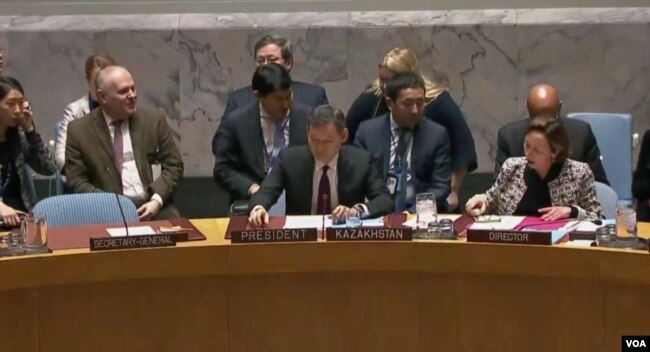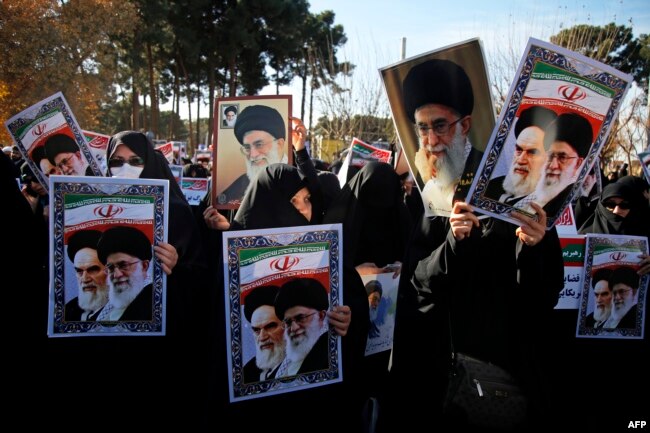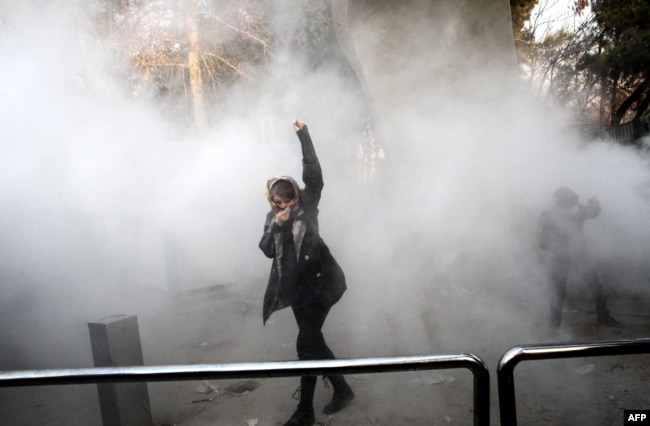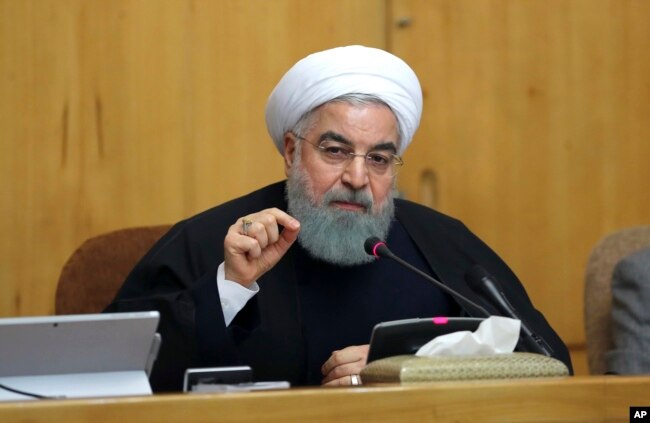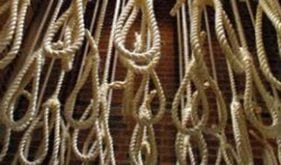VOA – The United Nations Security Council is holding an emergency meeting Friday to discuss the competing pro- and anti-government demonstrations in Iran, which have left 22 people dead and led to the arrest of more than 1,000 others.
U.S. Ambassador Nikki Haley requested Friday’s Security Council meeting. Russia and other members of the U.N. Security Council have criticized the move, saying the protests are a domestic issue and do not involve threats to international peace and security.
In the meeting, four U.N. special rapporteurs were quoted saying Iranian authorities should take immediate action to ensure that all Iranians can exercise the right to peaceful free expression without fear of violent consequences.
After introductory statements at the meeting, Ambassador Haley took her turn, saying the protests are “something the world must take note of.” She called them a “spontanous expression of fundamental human rights” and a “powerful exhibition of brave people who have become so fed up with their oppressive government that they are wiling to risk their lives in protests.”
She said some members of the Security Council believe human rights have no place in Council affairs, but that the United States disagrees.
Haley called on the Iranian government to stop censoring the voice of the Iranian public and to restore their access to the internet.
“The Iranian regime is now on notice,” she said. “The world will be watching what you do.”
Government advocates
Meanwhile, thousands of government advocates rallied for a third straight day in dozens of locations around Tehran and several cities after Tehran’s prayer leader urged authorities to deal “firmly” with those responsible for sparking more than a week of anti-government rallies.
Iranian officials say a plot by the Central Intelligence Agency, Israel and Saudi Arabia is responsible for the unrest amid escalating tensions with the neighboring countries since Donald Trump won the U.S. presidency.
In an interview with VOA contributor Greta Van Susteren, Democratic Senator Ben Cardin cautioned that the U.S. must walk a “delicate line” in response to allegations of provocation.
“We don’t want to give them any ammunition for what they’re saying. We know that the Iranian’s don’t tell the truth about what is happening. Their people know that,” Cardin said.
Cardin added: “I think it’s important for us to keep a spotlight on the protestors and do everything we can to keep them safe and to take action against Iran if they violate basic human rights. I think the seeds for protest will remain unless the Iranian leaders change their course and allow the people basic human rights and basic economic freedoms.”
WATCH: U.S. Senator Ben Cardin discusses Iran unrest
The U.S. is promising support for anti-government protesters. A White House official Thursday said the U.S. would look for “actionable information” and seek to impose new sanctions against those responsible for stifling protests that began just last week.
The State Department also said it would not stand by idly.
“We have ample authorities to hold accountable those who commit violence against protesters, contribute to censorship, or steal from the people of Iran,” it said in a statement. “To the regime’s victims, we say: You will not be forgotten.”
New US sanctions
Though not tied directly to the protests, the U.S. Thursday sanctioned five Iranian companies linked to Tehran’s ballistic missile program.
“These sanctions target key entities involved in Iran’s ballistic missile program, which the Iranian regime prioritizes over the economic well-being of the Iranian people,” Treasury Secretary Steven Mnuchin said in a statement.
“As the Iranian people suffer, their government and the IRGC (Islamic Revolutionary Guard Corps) fund foreign militants, terrorist groups and human rights abuses,” Mnuchin added.
Ahead of Friday’s U.N. meeting, four U.N. human rights experts called on Iranian authorities to respect the right of protestors and said they are “extremely concerned” over the deaths and arrests that have occurred since the protests began.
The experts also expressed concern that the government has reportedly blocked the internet on mobile networks and shut down social media platforms in an effort to suppress the anti-government protests.
“Communication blackouts constitute a serious violation of fundamental rights,” they said.
Iranian public’s discontent
The protests, which seemed to erupt spontaneously on December 28, have spread to many of Iran’s smaller cities, towns and rural areas, with protesters focused on economic hardships and government corruption.
But Iranian officials on Thursday insisted the wave of anti-government protests had waned.
General Abdolrahim Mousavin, the head of the army, thanked security forces for “putting out the fire of sedition.”
Interior Minister Abdolreza Rahmani Fazli said only 42,000 people had taken part in the protests. And an official with the country’s elite Revolutionary Guards force said the number of “troublemakers” was less than 15,000.
Instead, state television Thursday showed huge crowds marching in support of Iranian leaders in several major cities, including Isfahan, Ardebil and Mashhad, where the protests started.
Still, U.S. intelligence officials warn Tehran is at a crossroads, noting the protests are the biggest outpouring of public discontent since Iranians took to the streets in 2009 following a disputed presidential election.
“The protests are symptomatic of long-standing grievances that have been left to fester,” an intelligence official told VOA on condition of anonymity. “Will it address the legitimate concerns of its people or suppress the voices of its own populace?”
“What is clear is that these concerns are not going away,” the official said.
Critics of Iranian President Hassan Rouhani say he has abandoned the poor, pointing to rising prices for key commodities like fuel, bread and eggs.
And even Ali Akbar Velayati, an adviser to Iran’s supreme leader, told the semi-official ISNA news agency, “The people’s main demand now is for the government and officials to deal with the economic problems.”
Growing U.S. pressure on Iran?
In the meantime, Iran could face additional economic pressure from Washington.
U.S. President Donald Trump is set to decide next week whether to continue to waive sanctions against Iran that were suspended under the 2015 international agreement to curb Iran’s nuclear weapons development. Trump has repeatedly attacked the agreement and assailed Tehran’s military actions in Syria, Iran and Yemen.
But some analysts warn the administration runs a risk of taking too harsh a line on Iran and seeing it backfire.
“There’s really no reason for us to not waive the nuclear sanctions now,” said Michael Eisenstadt, director of the Military and Security Studies program at the Washington Institute for Near East Policy.
“Don’t pull out of JCPOA (Joint Comprehensive Plan of Action nuclear deal) because that will redirect the attention of the Iranian people from the regime’s inability to solve their financial problems to us,” Eisenstadt said. “We shouldn’t make the United States the issue here.”
Margaret Besheer at the United Nations contributed to this report.
 Shabtabnews In this dark night, I have lost my way – Arise from a corner, oh you the star of guidance.
Shabtabnews In this dark night, I have lost my way – Arise from a corner, oh you the star of guidance.
